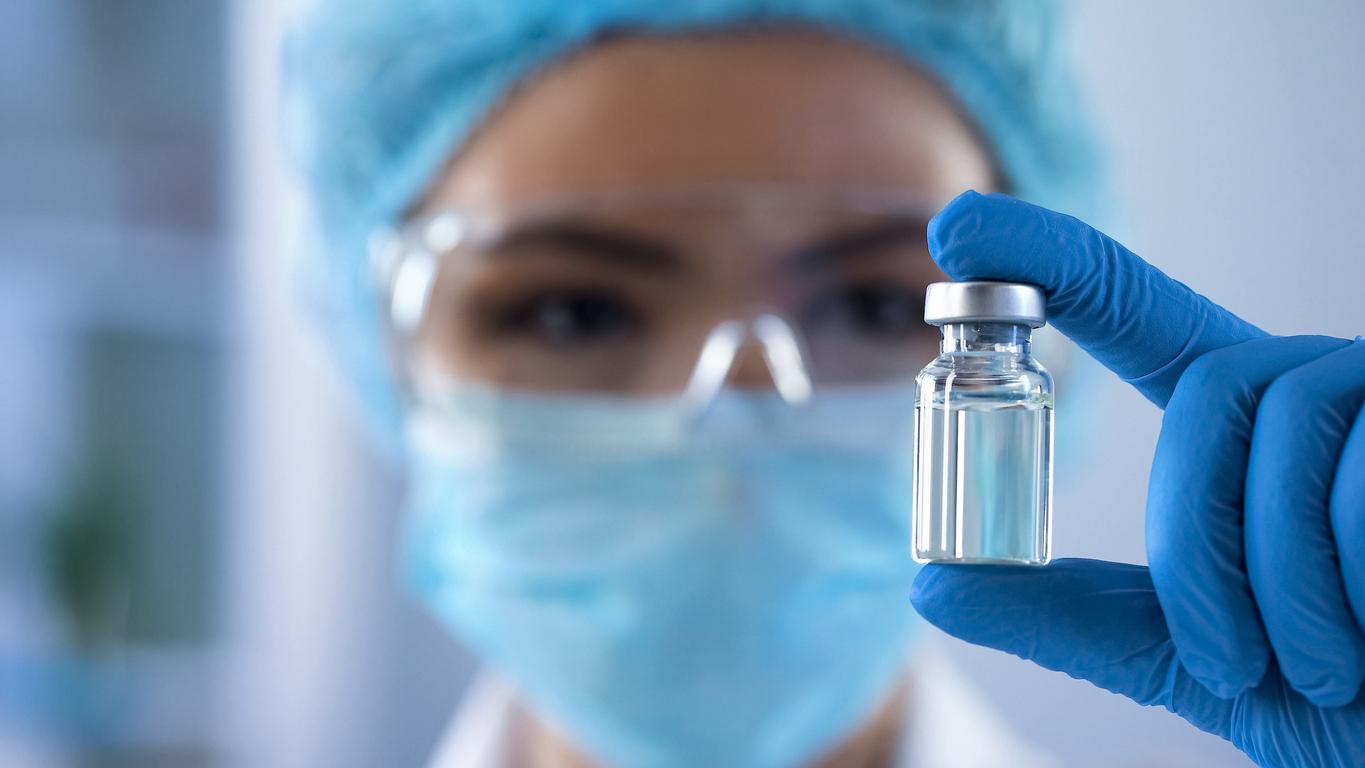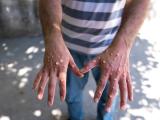As the global COVID-19 total topped 20 million today, Russia's president said the country is the world's first to approve a vaccine, though it is not fully tested, and New Zealand reported its first local cases after going more than 100 days with no transmission.
The pandemic total today rose to 20,166,415 cases, and 738,266 people have died from their infections, according to the Johns Hopkins online dashboard.
Russia vaccine announcement stirs skepticism
Earlier reports said Russia was in early human trials with an adenovirus vaccine developed by the Gamaleya Institute, with an approval expected in the first half of August to coincide with the launch of large-scale trials. However, no other details were available, raising concerns about the speed of the development and if all scientific and safety steps had been covered.
President Vladimir Putin announced today on state TV that the vaccine has been registered and that one of his daughters had already received it, after which she experienced a slight fever.
Critics suggest Russia has cut corners with the vaccine by clearing it before phase 3 studies are done to test efficacy and further test safety in a larger group. Also, some have said the country's vaccine push has political overtones, with a goal of positioning Russia as a global science leader.
Russian officials say other countries have expressed procuring doses of the country's vaccine, including some in Latin America, the Middle East, and Asia. For example, Philippines President Rodrigo Duterte said he welcomed a supply offer from Russia and that his country would participate in trials, supply, and production, Reuters reported.
Scott Gottlieb, MD, former Food and Drug Administration (FDA) director who is a resident fellow at the American Enterprise Institute, said on CNBC this morning he wouldn't take Russia's vaccine, especially outside of a clinical trial, and that so far, it appears the vaccine has only been tested in several hundred people at most.
He added on Twitter that Russia was apparently the source of a disinformation campaign to cast doubts on US COVID-19 vaccines and that an "approved" vaccine on the equivalent of phase 1 data may be another effort to fuel doubts or goad the United States into forcing early action on vaccines.
New Zealand detects new cluster
After going 102 days with no new local cases, New Zealand's health ministry today announced four confirmed cases, all from the same family. The index case, an individual in his or her 50s, lives in South Auckland, and so far, the source of the virus isn't known. The investigation found no history of international travel.
The person had symptoms for 5 days and yesterday tested positive in two rounds of tests to confirm the results. Contact tracing and testing has identified three more positive cases.
Health officials have ramped up free testing and have said there are no barriers for people with cold and flu symptoms to be tested. The country's prime minister today tightened restrictions on Auckland for the next 3 days, keeping people from work and school and limiting gatherings to no more than 10 people, Reuters reported.
Ashley Bloomfield, MD, New Zealand's director-general of health, said in the health ministry statement, "This case is a wake-up call against any complacency that may have set in."
COVID-19 threatens progress against other infectious diseases
At a Pan American Health Organization (PAHO) briefing today, director Carissa Etienne, MBBS, MSc, warned that the fight against COVID-19 threatens plans in the Americas to eliminate and control other diseases such as tuberculosis, HIV, and hepatitis.
Eighty percent of countries in Latin America and the Caribbean have reported challenges delivering TB treatment, which Etienne said could turn manageable cases into active infections.
After a big spike in dengue cases in the first 2 months of the year, reporting of mosquito-borne diseases is down 40%, with a decline in the number of people being tested, obscuring the true picture of what is happening with the diseases.
Etienne urged health systems to leverage telemedicine and provide care outside of hospital settings, such as in community outreach programs or home visits.
In other global developments:
- India's president today urged 10 of the country's most populous states to scale up testing and contact tracing to help the country reduce its COVID-19 burden; Reuters Daily cases in India have exceeded 50,000 cases every day since July 30, and health officials worry about the spread of the virus to less populated areas that have weaker health systems.
- Pakistan's cases have slowed since June, and the country yesterday reopened gyms, salons, and restaurants after a 5-month shutdown.
- In Latin America, a second spike of COVID-19 activity in Peru has triggered unrest over demands for economic aid and healthcare support, and Mexico said it will host clinical trials of COVID-19 vaccines developed by Johnson & Johnson and two Chinese companies.
- In Europe, France is reporting a new rise in hospitalizations and the United Kingdom has reported its highest daily total since June 21, with 1,148 new cases today.






















